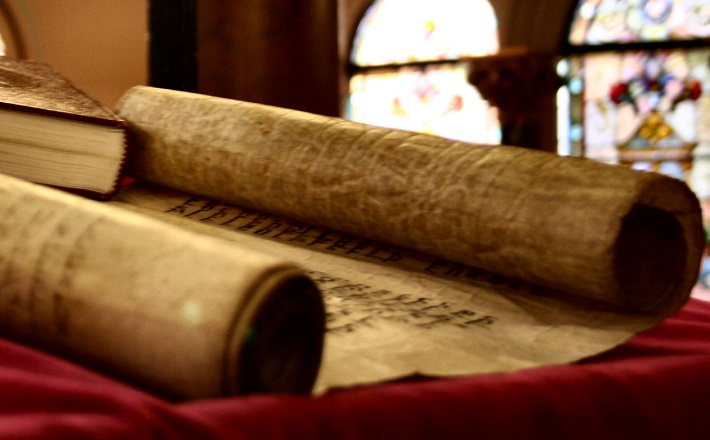Commentary on 1 Corinthians 12:12-31a
We often confuse unity with uniformity, because it is much easier to gather with people who are like ourselves than it is to reach across the divisions which mark our culture.
Thus, few of our churches reflect the ethnic, social, and economic diversity of the neighborhoods around them. Our congregations are often very homogenous, and we are, sadly, comfortable with that.
Paul insists on something richer. Since the church is intended to be a foretaste of the final reconciliation of all things that God promises, Paul calls the church to start acting that way. Thus diversity within the church is not a problem to be avoided, solved, or managed, but a gift of God’s grace and a sign of the Spirit at work. The differing gifts of the Spirit form us in such a way that we do, and indeed must, belong to one another.
Paul’s claims throughout chapter 12 of 1 Corinthians find their foundation in baptism (verses 12-13). In baptism we experience the Spirit of God at work to overcome the divisions which the powers of this world nurture and on which they depend. The Corinthians had been competing with one another according to their culturally-defined values. They were using the gifts of the Holy Spirit, meant for the good of the whole community, as their personal arsenal in the competition for honor at the expense of others. However, by pointing to the church’s common experience of God’s grace in baptism, Paul makes clear that we all share the same water, the same promise, the same Spirit, and thus all are equally part of the same body.
It will be helpful for us to ask what, in our context, corresponds to the culturally-divided pairs mentioned in verse 13. Where do we find the human polarities now overcome in baptism, and brought to surprising and profound unity in Christ? Black or white, Asian or Hispanic or First Nation; straight or gay, single or married; citizen or undocumented; rich or poor; young or old. What about the homeless, or the mentally ill? It is unlikely that fights over spiritual gifts will cause trouble in most of our congregations. However, these ethnic, social, and economic distinctions more frequently do. This is where our own struggle for unity within diversity may be focused. Perhaps even more challenging for us is the accompanying diversity in conviction about how the faith is to be lived out. In such disagreement, though, we find ourselves called to recognize that diversity helps us to keep asking what God’s will actually is, rather than trapping ourselves in the same old assumptions. Holy diversity is an important remedy for our tendency toward complacency.
The image of the body as a communal reality is not unique to Paul (though Paul is the only writer in the New Testament to use it). Other writers in the Roman world (especially politicians and philosophers) used the same image. Most often, it was used to support the social hierarchy (whether of the family, or the city, or the empire as a whole). The point was that every body needs a head, and in society that was provided by the wealthy, the rulers, and the elite. Every body needs hands and feet to do the hard and dirty work, and that was provided in society by just about everyone else. Paul, while drawing on the same image, turns the point in a very different direction. The unity of the body does not, in fact, mean that the less honored members get abused and treated roughly; rather, all the parts belong to one another, and therefore the “weak” parts are treated with special care. The end result of the body metaphor in Paul’s hands is not the same old hierarchy, or even the inverse of that culturally-expected pattern of domination with new people placed on the top, but a deep unity of the whole body, with each part cared for by the others.
Yet there is a kind of inversion happening here around the “weak.” The theme of weakness in 1 Corinthians has basic social and economic dimensions. Paul reminds the Corinthians that God has called mainly the weak of the world (i.e., those without status) rather than the noble-born and the powerful (1 Corinthians 1:26-27). Paul has already insisted that such cultural weakness characterized his own ministry because, in a foundational way, it characterized Jesus’ crucifixion (2:1-5). Contrary to most translations, 1 Corinthians 1:25 does not talk about “the weakness of God,” but “the weak thing of God,” which is the cross itself. Thus, the socially and economically “weak” cannot be despised, rejected, or marginalized in the church (or by the church!), because God’s power is in fact at work in what the world sees as weakness (2 Corinthians 12:9).
In the Corinthian church, the “weak” were in fact being despised and shamed by some of the others (1 Corinthians 11:22). Paul calls the church to a better way of life together. Differences within the church are, astonishingly, something that God has arranged (verse 18). Thus, the diversity within the church community is not something to be tolerated, or regretted, or manipulated for one’s own advantage, but something to be received as the gift that it is. Paul’s argument implies that not only diversity, but unity in that diversity, is a reality without which the church cannot live.
Whatever strengthens the community of the church is to be sought, welcomed, and nurtured as God’s good gift. Yet it may be worth noticing that the gifts which Paul lists as “first, second, third” in verse 28 all deal with the word spoken to the church in one form or another. “Faith comes from hearing, and hearing comes through the word of Christ” (Romans 10:17). A congregation can probably exist and even thrive without healings or speaking in tongues; but it cannot live without the word of Christ spoken and heard. It is the good news, proclaimed and taught, that will form the church into one body in Christ.


January 24, 2016